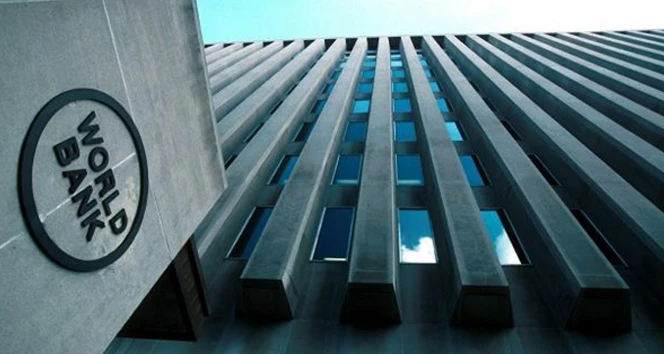World Bank reduces Türkiye’s economic growth forecast, expecting weaker outlook
 File photo shows the World Bank headquarters in Washington, D.C, U.S. (IHA Photo)
File photo shows the World Bank headquarters in Washington, D.C, U.S. (IHA Photo)
The World Bank has downgraded its economic growth forecasts for Türkiye, projecting growth of 2.6% in 2025 and 3.8% in 2026, reflecting a broader slowdown in developing economies.
The Global Economic Prospects report of January 2025, released on Jan. 16, stated that Türkiye’s economy is expected to grow by 2.6% this year and 3.8% next year. This reflects a downward revision from the June 2024 forecast, which had predicted growth rates of 3.6% for 2025 and 4.3% for 2026.
“In Türkiye, growth softened to an estimated 3.2% in 2024, as private demand moderated amid a monetary policy tightening cycle that began in mid-2023. The economy fell into recession in the third quarter as activity was slower than expected,” the report stated.

The report noted improvements in Türkiye’s external imbalances, including a sharp narrowing of the current account deficit, an increase in international reserves, and a decline in risk premiums, contributing to significant reductions in the country’s spreads.
Developing countries to face weaker economic growth
Globally, growth is expected to stabilize at historic lows over the next two years. The World Bank forecasted global growth of 2.7% for both 2025 and 2026, with inflation and interest rates anticipated to decline gradually during this period.
However, growth in developing economies is projected to remain at around 4%—a weaker performance compared to the pre-pandemic era. The bank warned that this level of growth would be insufficient to alleviate poverty and achieve broader development goals.
“Most of the forces that once fueled the rise of developing economies have dissipated,” said Indermit Gill, the World Bank’s chief economist. “In their place, daunting headwinds have emerged: high debt burdens, weak investment and productivity growth, and the rising costs of climate change.”
Since 2014, economic growth per capita in developing countries—excluding China and India—has lagged behind wealthy nations by an average of 0.5 percentage points annually, the report revealed.
Gill emphasized the need for a “new playbook” for developing economies to counteract this slowdown. This strategy, he said, should prioritize domestic reforms that encourage private-sector investment, deepen trade relations, and promote the efficient use of capital, talent, and energy.
Regionally, the World Bank expects slower growth in East Asia, the Pacific, Europe, and Central Asia due to weak domestic demand in China and Europe. In contrast, sub-Saharan Africa, Latin America, the Middle East, and North Africa are predicted to see stronger demand, bolstering growth prospects in these regions.



